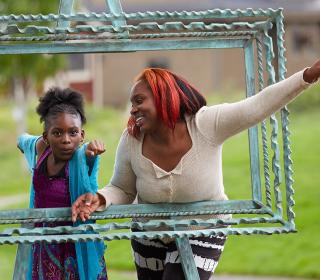What we stood for this year
At YWCA Seattle | King | Snohomish, our work is based on the fight for racial and gender justice. As civil rights continue to be eroded for women, people of color, and other marginalized communities, mental health has become even more important.

"If we wanna stand against racism, we first have to admit that it exists. We have to admit it's institutional. It is hard and uncomfortable to look at the past and figure out how we got here today." - Mayor Jenny Durkan
Studies indicate that people of color experience high rates of bias and racism in health care, as well as other areas. Compounded by the fact that people of color often lack access to accurate diagnoses and high-quality treatment, living with the daily stress of racism can negatively impact mental and physical well-being.

"Race-based trauma is a consequence of emotional pain that a person feels after encountering racism." Dr. Sharon Knight

People of color are more likely to be misdiagnosed, suffer inadequate treatment, lack culturally competent care, and be denied access to non-emergency room mental health treatment. These disparities have led to the wrongful routing of people of color into the criminal justice system and are often at the root of the school-to-prison pipeline.

"20 percent of children struggle with mental illness and black children are disproportionatey more affected." - Dr. Ivor Horn
The painful and well-documented history of government-sanctioned medical research experiments that knowingly exposed communities of color to health hazards contributes to the reluctance of some to seek care.

"All the ills we live come from within our bodies. We need to look at the social determinates of health." - Mark Fadool
Our moderator Dr. Ivor Horn and panel of experts that included Dr. Sharon Knight, Mark Fadool, Sabina Neem, Jessica Wolfe, Daniel Malone, and Sarah Rankin discussed ways in which unconscious and conscious bias, racism, sexism, homophobia, and other barriers affect health care access and lead to homelessness and the school-to-prison pipeline.
The panel left us with some great takeaways: acknowledge our sameness and differences, engage in the healing process, think about how your privilege informs how you move through the world and don't underestimate the truth and power that you have to make a change. Join the work.

Salma Siddick is the Social Media & Content Manager at YWCA Seattle | King | Snohomish. An immigrant from Zimbabwe, Salma has lived, worked, and attended school on three continents.
We share the stories of our program participants, programs, and staff, as well as news about the agency and what’s happening in our King and Snohomish community.

